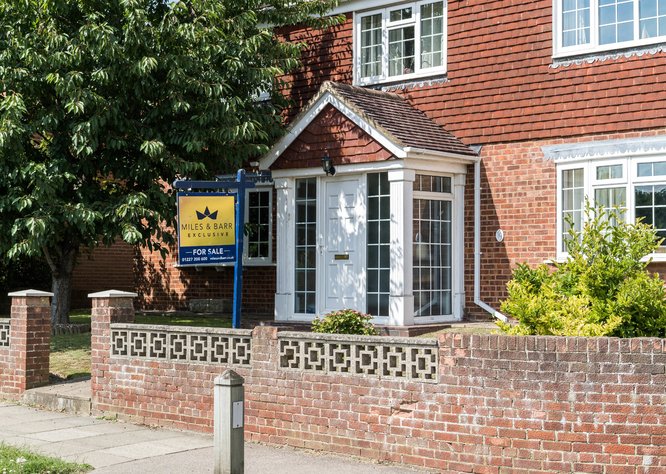
- Home
- Get Social
- Blog
- News
- Guide to Mortgage Porting: 8 Frequently Asked Questions
07 Jul 2023
Guide to Mortgage Porting: 8 Frequently Asked Questions
With interest rates on the rise, our financial services team have been inundated with queries about the process of transferring an existing mortgage rate from one property to another. So, we have compiled a list of eight of the most commonly asked questions when it comes to porting your mortgage between properties.
Porting a mortgage may appear a daunting and complex process, but this frequently asked question guide should give you clarity on the process.

These questions have been answered with the help of our friends at Finamply, who are experts in financial services.
1. What does the term "mortgage porting" mean and how does it work?
Mortgage porting refers to transferring your existing mortgage to a new property in the UK.
If your mortgage is portable, it allows you to maintain your mortgage product and interest rate that may not be available with a new mortgage application.
The process of porting is like switching to a new deal or lender, as it involves undergoing a new affordability assessment, but the difference is you will keep the same interest rate and terms. The lender will also have to evaluate the value of the new property, which may require paying a valuation fee.
Upon the completion of selling the first property, the mortgage associated with it is paid off, and a new mortgage is issued for the second property upon completion of the purchase. Although they are separate mortgages, the terms for both are exactly the same.
2. When is it a good idea to consider porting your mortgage?
Porting your mortgage occurs when you sell your existing property and move to a new home whilst keeping your current mortgage deal. It's a good idea if you want to avoid the process of getting a completely new mortgage; instead of starting the whole mortgage application process again, you can just transfer your existing mortgage to the new home. This is especially beneficial if you are eligible to pay early repayment charges (ERC’s) for leaving your current deal before the term is up, as you will be able to avoid these through porting.
Porting a mortgage retains the interest rate and terms, so it is a good idea if you have a favourable interest rate on your current mortgage that you want to keep.
3. Is it possible to borrow more when porting a mortgage?
Porting your mortgage and borrowing more money can be done. We recommend speaking with a financial adviser for more details.
Here are three important things to remember if you want to port your mortgage and increase your borrowing:
- If you're already borrowing the maximum amount your lender allows, you might not be able to port your mortgage.
- You can only get additional borrowing from your current lender.
- If your lender agrees to lend you more money, it will be through a separate mortgage product from their current range. This means you'll have to pay another arrangement fee, and the interest paid on this part of the loan will be in line with current market rates.
If you are considering borrowing more, we recommend having a free, no obligation chat with one of Finamply’s expert financial advisers, click here to arrange a call at a time that suits you.
4. Can you port your mortgage if you're downsizing?
If you're moving to a less expensive home and need to borrow less money, porting your mortgage can be a great choice, especially if you have a good interest rate.
If your mortgage has an early repayment charge (usually between 1% and 5%), that charge will likely be applied to the difference between the two loan amounts. For example:
| Current loan amount | £350,000 |
| New loan amount | £200,000 |
| Early repayment charge | 2% |
| COST TO PORT: | £3,000 (£150k x 2%) |
*These figures have been given to us by our friends at Finamply, and only serve as an example
Early repayment charges vary depending on the length of your term left, and between lenders. It is always worth consulting a mortgage broker to check what your early repayment charges would be when porting your mortgage to a cheaper property.
5. In which situations should you avoid porting your mortgage?
If you aren’t eligible for paying ERC’s for leaving your current mortgage, or if your current mortgage rate isn't as good as other options available on the current market, it might not be worth porting your mortgage. Before deciding to port, make sure to check that your deal is the best on the market and speak with a financial adviser.
6. Will I be eligible to port my mortgage?
Most, but not all lenders allow mortgage porting. This will be outlined in your mortgage agreement, so firstly, have a read through your documents to see if your lender allows this.
If your lender does allow it, there are other factors that determine your eligibility such as:
- Property type - If your new property has any non-standard house characteristics eg: building material, location, design, etc, lenders consider these properties riskier. However, certain lenders may be more open to flexibility. They might require a larger deposit to offset the perceived higher risk associated with unconventional properties.
- Affordability - It's important to note that lending criteria may have changed since you initially obtained your mortgage, and this can affect the amount you can borrow. Typically, most lenders won't lend more than 4.5 times the annual income of the applicant/s. For example, if you earn £50,000 per year, the maximum you may be able to borrow would be around £225,000. However, some lenders may be willing to lend more depending on the specific situation.
- Retirement - Even if you're retired, there's a possibility to port your mortgage, especially if you're nearing the end of the term or have made significant progress in paying off your current property's mortgage.
Many lenders have a maximum age limit of 75, and some also consider the age you'll be when the mortgage term ends. If you have savings and can make early payments to reduce your mortgage, it improves the likelihood of your lender approving your application.
7. How much does it cost to port a mortgage?
When considering porting your mortgage, the costs involved will depend on whether you are:
Keeping the same level of borrowing:
Typical cost: £0
Usually, there won't be an arrangement fee, and you may only need to pay for a valuation of your new property (which can even be free with some lenders).
Increasing your borrowing:
Typical cost: £100-£500
There may be an arrangement fee because the additional borrowing will be on a separate, current product.
Decreasing your borrowing:
Typical cost: 1%-5% of the differential loan amount
If you are reducing the amount you borrow, ERC’s may be applied to the difference between the two loan amounts, namely, the portion you are paying off early.
8. Are there any downsides to porting a mortgage?
- Limits on borrowing – If you want to borrow more money, porting your mortgage may not be the best option for you compared to applying for a new mortgage.
- You will need to apply again – Even though it may be easier to get approval from your current lender, you still have to go through the application process, which can be challenging if your financial situation has changed and approval is not guaranteed.
- Possibility of having two loans – If your new property is more expensive you may have to take on a new mortgage. This could result in having two separate loans with different interest rates.
- Potential for better rates – There is a chance that better mortgage deals are available, so sticking with your existing mortgage may cause you to miss out on those opportunities.
If you want to get the ball rolling with your porting process, or even if you still have a few questions, please feel free to arrange a free chat with an expert financial adviser from our sister company, Finamply.

Instant Property Valuation
What's yours worth? An up-to-date valuation of your property is the first step to finding your dream home!
